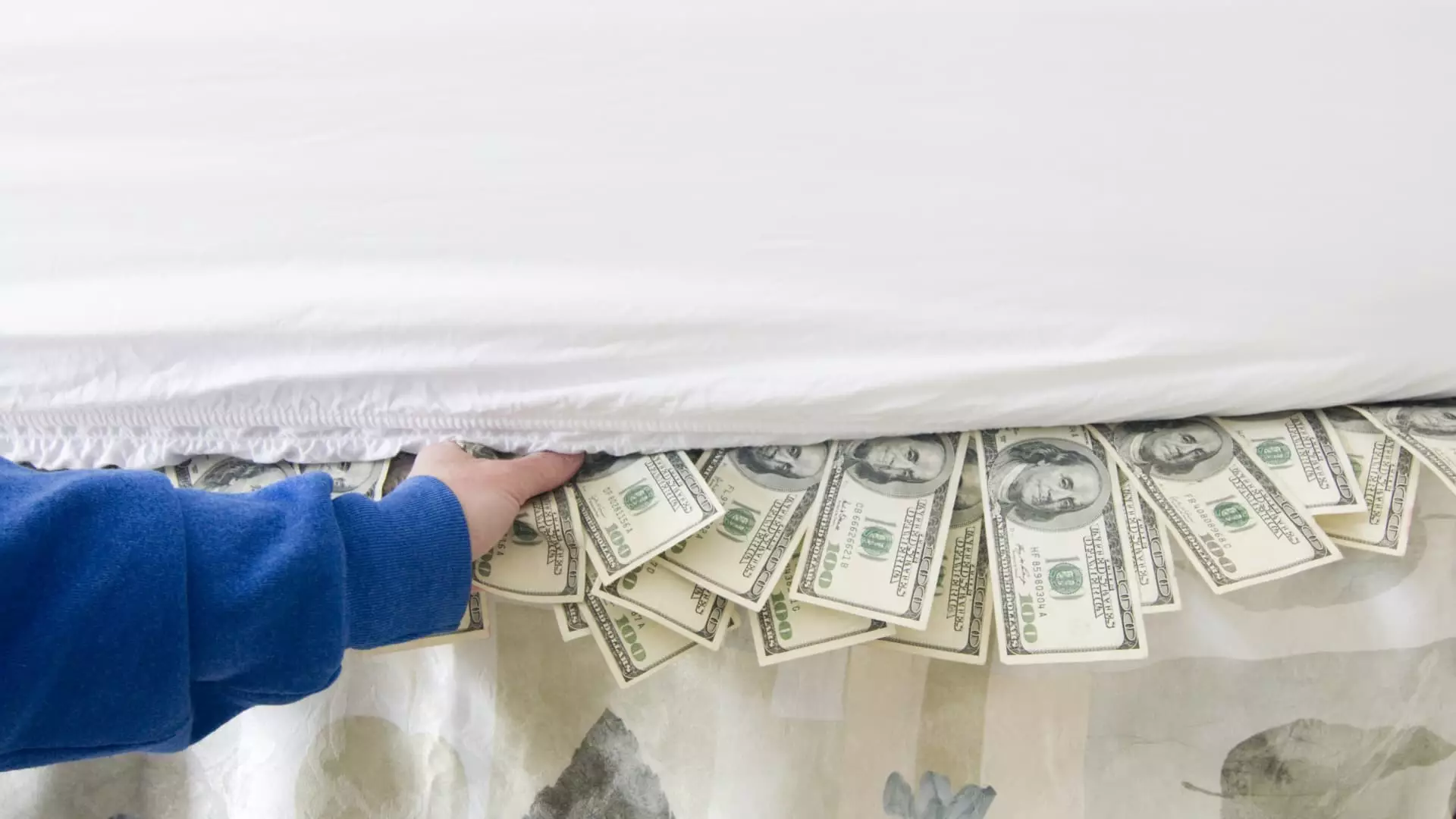In a world where financial security is paramount, the instinct to keep cash at home might seem appealing. However, this habit often masks a myriad of inherent risks that should give every individual pause. A recent survey by Piere reveals that as of early 2023, the average American keeps roughly $544 in cash and valuables lying about the house—an alarming figure that hints at a cavalier attitude towards personal finance management. With about 10% of people stashing their money in safes, one has to wonder: are these practices really safeguarding our finances?
Despite the false sense of security that concealing cash in nightstands, under mattresses, or inside kitchen freezers provides, such placements can leave individuals vulnerable to loss, theft, or even natural disasters. Unlike funds deposited in a bank—where they are insured and protected by the Federal Deposit Insurance Corporation—money hidden around the house offers no formal protection. Imagine the disheartening moment when you realize that your safety net has suddenly become a black hole of uncertainty.
The Fallibility of Insurance Coverage
Digging deeper, issues arise when considering home insurance policies. In many cases, cash and precious metals fall under a special limits category, meaning they are insured only up to a certain amount—often around $200. For individuals stashing thousands, this limit can be offensive and misleading. You might be tempted to file a claim for cash lost in an unfortunate event, but insurance providers may demand extensive proof of your hidden treasure. If you’ve kept your money tucked away in secret compartments, your claim could easily be met with skepticism.
Furthermore, the idea that cash stowed away safely is entirely risk-free is a myth. If catastrophe strikes, say, a fire that consumes your home, the physical currency becomes mere ash. The stark contrast between cash at home and cash in a secure institution couldn’t be clearer; one option will shield you from loss, while the other puts you at risk of watching your savings evaporate in seconds.
Emergency Preparedness: Navigating the Middle Ground
Despite these revelations, there’s merit in having some cash readily available for emergencies, as emphasized by financial experts such as Carolyn McClanahan. She argues that cash is indeed “king” in scenarios where electronic payments fail—like during power outages after hurricanes. But how do we balance this practical need with the inherent risks of cash storage? The solution is not simply more hiding spots, but rather a concerted effort to rethink our cash management strategy. Financial advisors recommend maintaining a cash sum sufficient for a couple of days’ expenses, stored thoughtfully rather than chaotically.
Ultimately, the quest for the best storage methods leads experts to advocate for a designated “personal financial bag,” ideally kept in a fireproof safe, where both cash and crucial documents are stored securely. The idea is simple yet effective: know where your money is, and empower your household with this information. If emergencies arise, you’ll have an efficient plan and less anxiety on how to access critical funds.
The Allure of Investment: A Better Way Forward
The importance of consistently reassessing personal finance strategies cannot be overstated. Financial apathy—manifested by the preference to hoard cash in inconspicuous locations—can ultimately cost individuals more than they intend. Keeping funds in a high-yield savings account or investing them wisely can lead to returns that exceed inflation, securing a brighter financial future. Simply put, cash does not grow; investments do.
The current market volatility may intimidate some from diving into investments. However, historical data illustrates that, over time, investments have consistently offered superior returns compared to cash savings. With the average high-yield savings account currently offering around 4.20% APY, the rationale for hoarding cash diminishes. The benefits of strategic investment or even a savings account are glaring when juxtaposed against the paltry interests on cash stored around a home.
Reassessing Our Relationship with Cash
The American tendency to keep cash at home is rife with misconceptions and risks that demand scrutiny. It’s crucial to understand the broader implications of our financial habits and challenge the tradition of underestimating the value of sound financial strategy. Cash might seem comforting when nestled in a secret drawer or beneath a mattress, but it’s clear that safety lies not in secrecy but in prudence.
As consumers, we must learn to navigate the world of finance with an emphasis on safeguarding our assets effectively, while also being prepared for the unforeseeable. Adapting our attitudes towards cash and seeking better alternatives is not just a prudent choice but a vital step toward ensuring long-term financial security.

